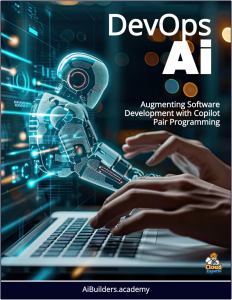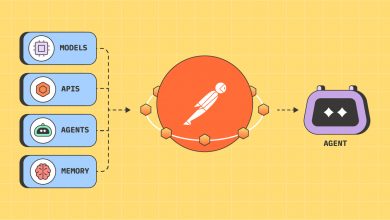What Is The Role Of AI In Software Testing?
By leveraging AI technologies, organizations can enhance the efficiency, accuracy, and effectiveness of their software testing processes.
 Software testing is a critical phase in the software development lifecycle that ensures the quality and reliability of the final product.
Software testing is a critical phase in the software development lifecycle that ensures the quality and reliability of the final product.
With the advancements in technology AI is revolutionizing the way testing is conducted, offering enhanced efficiency, accuracy, and speed.
Software testing is a critical yet often time-consuming part of development, ensuring applications work as intended before they reach users. Traditionally, it’s relied on manual effort or scripted automation—both of which have limitations in speed, scalability, and adaptability.
Enter artificial intelligence (AI), which is poised to revolutionize this field. By leveraging machine learning, natural language processing, and generative AI, software testing is becoming faster, smarter, and more efficient.
1. Automating Test Case Generation
Writing test cases is a labor-intensive process that requires developers or testers to anticipate every possible scenario—edge cases, user behaviors, and system failures. AI changes this by automatically generating test cases based on requirements, code, or historical data.
- How It Works: AI models, particularly those using natural language processing (NLP), can analyze requirement documents or user stories (e.g., “The user should be able to log in with valid credentials”) and create corresponding test cases. Generative AI can even produce variations to cover edge cases—like invalid inputs or unexpected user actions.
- Impact: This reduces the time spent on planning and ensures broader coverage. For example, a team building an e-commerce app might use AI to generate tests for checkout flows, including rare scenarios like payment timeouts, without manual scripting.
- Future Potential: As AI learns from past projects, it could predict which areas of code are most likely to fail, prioritizing test creation where it’s needed most.
2. Enhancing Test Automation
Automated testing tools like Selenium or JUnit have long helped execute repetitive tests, but they require predefined scripts that can become brittle as software evolves. AI takes automation to the next level with self-adapting, intelligent systems.
- How It Works: AI-powered tools use computer vision and machine learning to “see” and interact with application interfaces, mimicking human testers. They can adjust to UI changes (e.g., a button moving) without breaking, unlike rigid scripts.
- Impact: Testers save time on maintenance, and testing keeps pace with agile development cycles. For instance, an AI tool could test a mobile app’s updated layout across devices, catching issues like misaligned buttons or slow load times.
- Future Potential: AI could autonomously explore apps, identifying untested paths—like a user randomly clicking through menus—and flagging anomalies, making testing truly exhaustive.
3. Predicting and Prioritizing Bugs
Not all bugs are equal—some crash systems, while others are minor annoyances. AI can predict where bugs are likely to occur and prioritize testing efforts accordingly.
- How It Works: Machine learning models analyze historical defect data, code complexity, and change logs to pinpoint risky areas. For example, if a module has a history of memory leaks, AI flags it for rigorous testing.
- Impact: Teams can focus resources on high-risk zones, reducing the chance of critical failures in production. A financial app, for instance, might prioritize testing payment processing over cosmetic UI tweaks.
- Future Potential: AI could integrate with development environments in real-time, warning developers about potential bugs as they write code, shifting testing left in the DevOps pipeline.
4. Improving Performance and Load Testing
Ensuring software performs under heavy use—like thousands of users hitting a website during a sale—is notoriously tricky. AI makes this easier by simulating realistic traffic and optimizing test conditions.
- How It Works: AI models analyze usage patterns (e.g., from server logs) to create lifelike load scenarios, then monitor system responses to identify bottlenecks. Generative AI could even simulate unpredictable user spikes.
- Impact: This leads to more reliable apps under stress. A streaming service could use AI to test how its servers handle a sudden influx of viewers during a live event, tweaking infrastructure preemptively.
- Future Potential: AI might dynamically adjust live systems based on test insights, blurring the line between testing and production optimization.
5. Accelerating Regression Testing
Regression testing—verifying that new changes don’t break existing functionality—can slow down rapid release cycles. AI streamlines this process dramatically.
- How It Works: AI identifies which parts of the codebase are affected by a change and runs only the relevant tests, rather than the entire suite. It can also learn from past regressions to spot patterns.
- Impact: Faster feedback loops mean quicker iterations. A team updating a CRM tool could deploy a new feature in hours, not days, knowing AI has vetted the update’s impact.
- Future Potential: Over time, AI could suggest code fixes for recurring regressions, acting as a co-developer alongside testers.
6. Enabling Smarter User Experience Testing
Beyond functionality, AI can evaluate how users perceive an application—something manual testing struggles to scale.
- How It Works: AI tools with sentiment analysis or behavior modeling can simulate user interactions and assess usability. For example, they might flag a confusing checkout process by analyzing simulated frustration points.
- Impact: This ensures apps aren’t just bug-free but also intuitive. An e-learning platform could use AI to test whether students find navigation seamless across devices.
- Future Potential: Paired with generative AI, testing tools could propose UI improvements—like alternative layouts—based on user behavior predictions.
The Future of AI in Software Testing
While AI promises to transform software testing, it’s not a silver bullet. Implementing it requires investment in tools, training, and infrastructure. AI models can also inherit biases from training data, potentially missing certain defects. Moreover, over-reliance on AI might reduce human oversight, where intuition still plays a role. Ethically, teams must ensure AI-driven testing respects user privacy, especially when simulating real-world scenarios with sensitive data.
As AI matures, software testing will shift from a reactive process to a proactive, predictive one. Testers will evolve into strategists, guiding AI systems rather than executing rote tasks. By 2030, we might see fully autonomous testing pipelines—AI designing, running, and refining tests with minimal human input, integrated seamlessly into CI/CD workflows.
For developers and businesses, the benefits are clear: faster releases, higher quality, and lower costs. A web app that once took weeks to test could be validated in days, giving teams a competitive edge. Ultimately, AI doesn’t replace human testers—it empowers them to focus on creativity and problem-solving, while machines handle the heavy lifting.
The question isn’t whether AI will change software testing, but how quickly teams will adapt to harness its potential. The future of flawless software is closer than ever—and AI is leading the charge.



